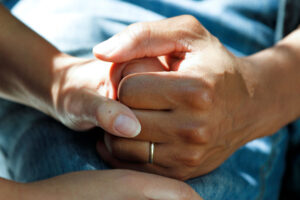Fear of Getting Married?

Current research is reporting that more people are saying they are not interested in getting married. The research concluded that marriage is becoming less and less popular. Losing this deepest of human bonds is very troubling. Why is this happening?
Is it because we are outgrowing marriage as an outdated 20th century institution? Perhaps there is another reason for an increase in “marriage phobia.” That old statistic that 50% of marriages lead to divorce, give or take a few percentages, is still around. And I’ve heard young people talk about marriage as a “trap” and an arrangement where they “lose their freedom” instead of being freed from the life long need to find love.
In my experience, marriage phobia is just another form of love life resignation and I’ll tell you why. A lot of people don’t know what they’ve learned about love relationships from the relationship experiences they’ve had in life starting from the very beginning of their lives. If you don’t know what you’ve learned about love relationships, then what you’ve learned is in control of your love life, good or bad, healthy or unhealthy. If what you’ve learned was healthy, great, you’ll probably repeat what you’ve learned. If what you’ve learned was unhealthy, you might be repeating love life disappointments over and over again, or feeling resigned to live without love in your life at some point after a certain number of disappointments have taken place.
If you’ve been disappointed in a number of love relationships, especially if you’ve been married a time or two or three and reached a point where you tell yourself, the hell with marriage, too painful, disappointing and/or expensive, you have reached a conclusion that starts to sound a lot like a marriage phobia. In other words, if I get hurt enough as a consequence of a broken marriages, or failed committed relationships, chances are I won’t be looking to jump into another one any time soon (or ever).
The real tragedy in this situation is that this problem can be fixed long before reaching a point of resignation against marriage or marriage phobia. Remember in most (or all) cases a “bad marriage” is bad for reasons. It’s not just random, even though a lot of people would like to think that. In my experience, over 30 plus years of clinical work with people struggling with unhealthy love lives, the “psychological baggage” that is being brought into a marriage or committed relationship is too often ignored mostly because a person doesn’t even know it exists. I like to refer to this psychological baggage as a person’s “psychological love life.” And by the way, everyone has one, whether you know it or not. And if you want to improve the chances of having a healthy love relationship, you’d better know what is in yours.
The success of your adult love life depends on the health of your psychological love life. Just like any other psychological function in a person’s life, your psychological love life can be evaluated, updated, improved or corrected, first by simply becoming aware of what’s in it. In your psychological love life you will find: 1) the healthy or unhealthy relationship experiences that taught you about love relationships from the beginning of your life; 2) what you’ve learned about love relationships from those relationship experiences, and; 3) the various ways you’ve learned to cope with what you’ve learned.
Again, the very good news is that by simply becoming aware of what you’ve learned about love relationships in your life you can take control of your love life and move it in the direction of new experiences that are an improvement over what you’ve learned in your life if what you’ve learned was unhealthy.
All comments are welcome. Tell me about your love life.
Dr. Thomas Jordan, clinical psychologist, author of Learn to Love: Guide to Healing Your Disappointing Love Life. Need help fixing your disappointing love life? Confidential Love Life Consultations available by phone, inquire at drtomjordan@lovelifelearningcenter.com.
